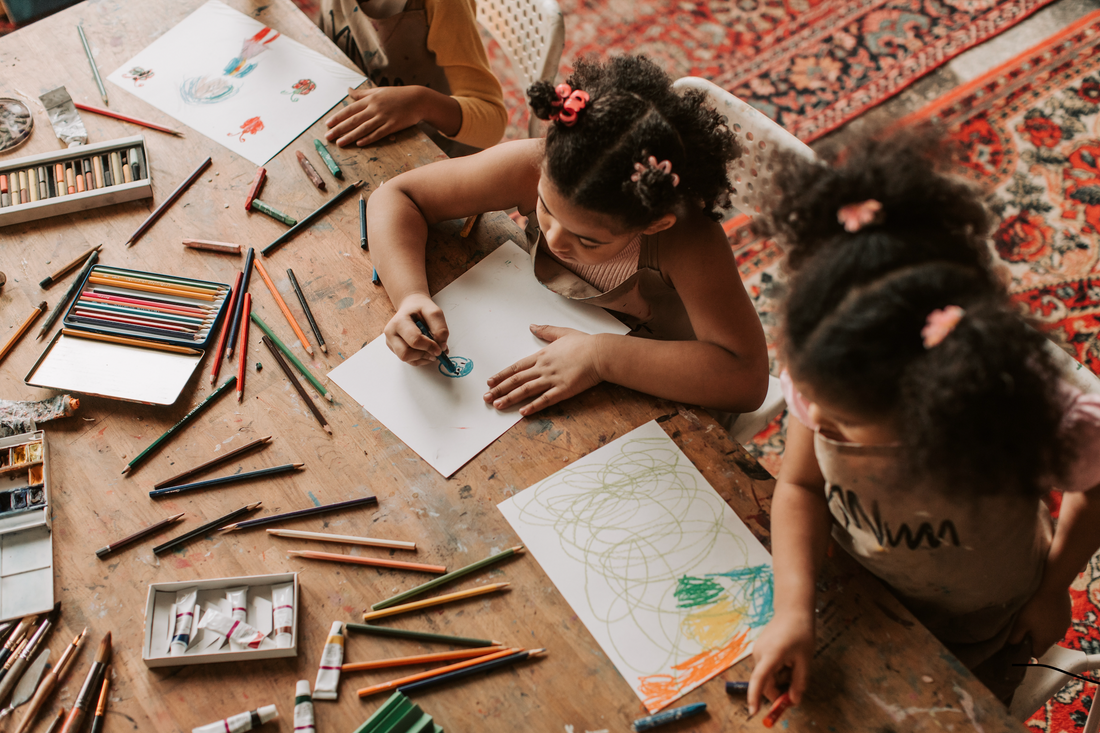Banana Buttons Playgroup
Twelve years ago, when I was a first-time mum and not the happy but slightly crumpled and biscuit-crumbs-covered mum of five I am now, we moved area. I had to work out how to care for a little baby in a new house miles from my friends.
The health visitor mentioned the village children’s centre, but it was months before I plucked up the courage to go. They offered free playgroups and I soon discovered the children’s centre in the nearest town did too. For many years, I was a regular, and my children and I made lots of friends. I learned about sensory and messy play and their benefits of this in the early years. The playgroups were a place to find reassurance and to be in the company of other mums and dads going through the same highs and lows of parenting.
The first time one of my children went through a fussy eating stage, I went to the children’s centre to do a course on healthy eating for little ones. When our heating broke, I took my children there to play with toys in the warm. When the government shut all the children’s centres in our area, and many more throughout the UK, I was sad for myself and other parents that this free support was gone. After a while, the local Salvation Army started a playgroup, but then the pandemic came, everything shut, and it never opened again.
My fifth child was born and there was no local playgroup. I really felt its absence. And so, with the help of another local mum – Liz, I decided to start one. We booked a room and collected toys, from our own toy boxes and also from generous donations. We made a nursery rhyme bag and decided to have a free table where people could donate and take children’s clothes. My children crayoned posters and we found a puppet to be our mascot. We spread the word.
Then, less than a week before we were due to open, we were told the charge for the room booking would be twice what we’d originally agreed. There was no way we could afford it and still provide a low-cost playgroup.
All seemed lost. But Liz spoke to the village vicar about our problem, and she offered us the use of the church for a donation. It meant we could charge the small fee we wanted to and provide sensory play and refreshments in a warm place.
The playgroup has been running for five months now and we recently had our first Christmas party. Liz is good at providing parents with cups of tea and crafts and I am good at filling the sensory tray with things that drive Liz mad when we clean up afterwards, like lentils or shredded paper.
Seeing the children play and the parents chat is very rewarding, and we are proud of ourselves for working together to fill the gap in local provision for little ones. We are busy planning many more sessions of play and fun.
Tips for starting a playgroup
- Try to find a non-profit venue such as a church or community hall that will only charge you a small rent or may even let you use the room for a donation. That way you can keep admission prices low and affordable, and you won’t get yourself in debt over room fees while you’re starting out.
- Ask a friend to help you run it. Not only will this make it easier, but if you want to register as a non-profit organisation to apply for grants or to set up a bank account, you will need to have more than one person involved.
- You don’t have to spend a fortune. Ask around for donations and you’ll be surprised how generous people can be with toys they don’t need anymore.
- Provide tea and coffee for the adults, and water, juice and biscuits for the children. This is always really appreciated.
- Keep an accident book, a first aid kit and write risk assessments for everything.
- Remember it’s a playgroup: get down on the floor with the children and have fun!
____
Victoria Jones is a home educator, playgroup leader and mum of five. She blogs about home education and large family life under the name Home Educating the mad lads on Facebook and on Instagram @homeeducatingthemad.
Photo: Vlada Karpovich
____
First published in Issue 82 of JUNO. Accurate at the time this issue went to print.







